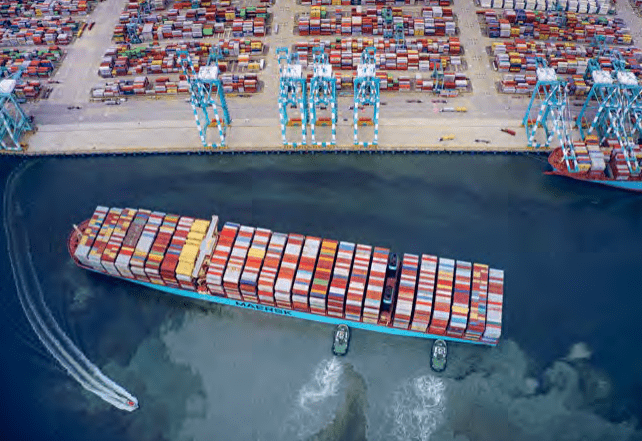Port traffic volumes increased 6.5% in 2021, mainly driven by North America and South Asia, but all regions showed significant growth rates, according to Drewry.
However, the Maersk company stressed that the strong increase in demand tested the flexibility of the supply side of the logistics industry and caused bottlenecks on land.
Storage capacity was not adapted to changing spending patterns and the growing demand for e-commerce.
The shortage of truckers, for example in the United States, meant that much container volume sat idle in facilities with limited capacity, negatively impacting port traffic, manufacturing and retail supply chains.
With this, according to Maersk, supplier delivery times increased significantly and, although port productivity was much higher than pre-Covid-19 pandemic levels, significant delays remain a challenge, as ships are anchored two to three times longer outside of Los Angeles than before Covid-19.
Port traffic
With a dedicated team of 95,000 people, operating in more than 130 countries, Maersk is a Danish shipping company, active in the maritime and land transport of goods and associated services, such as supply chain management and port operation.
Likewise, this company has been the largest container shipping line and ship operator in the world from 1996 to 2021.
While demand for logistics services rebounded strongly in 2021 across global supply chains, after falling sharply in 2020, recovery in demand, particularly in the United States, supported volume activity in freight forwarding markets. general merchandise.
Thus, world container sea freight increased 8% in 2021, and air cargo volumes (CTK) increased more than 20% in the period from January to November.
Looking ahead, Maersk’s global growth outlook remains strong for 2022, but risks are rising for most regions.
Furthermore, it is highly uncertain whether consumption of goods will continue to drive demand for logistics and container flows, especially when demand for services normalizes.
The 2022 outlook for freight rates is based primarily on when market disruptions will normalize.
![]()

